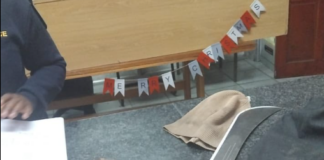Unlock this story — it’s free
The South African Public Colleges Organisation (SAPCO), together with Agric Africa Development, has launched the One Campus, One Garden Initiative alongside the Rising Chef Competition and Legacy Creators Awards. The programme, unveiled at Ngcobo Campus in October 2025, aims to improve food security, expand student training, and celebrate excellence across Technical and Vocational Education and Training (TVET) colleges.
What the Initiative Involves
The One Campus, One Garden initiative transforms underused college spaces into productive gardens that grow fresh produce for student meal programmes. Beyond food security, the gardens will serve as living classrooms, offering hands-on experience in agriculture, hospitality, and entrepreneurship.
Meanwhile, the Rising Chef Competition promotes culinary innovation among hospitality students, while the Legacy Creators Awards recognise outstanding student contributions in academics, leadership, and community service.
| Programme | Objective | Beneficiaries |
|---|---|---|
| One Campus, One Garden | Promote food security, practical agriculture learning | All TVET students |
| Rising Chef Competition | Enhance culinary creativity and innovation | Hospitality students |
| Legacy Creators Awards | Honour excellence and leadership | Top-performing students |
Step-by-Step: How Campuses Will Implement the Programme
- Identify Suitable Land: Each TVET campus will assess and allocate available land for garden development.
- Prepare and Plant: Students and lecturers will collaborate to cultivate vegetables and herbs suited to local conditions.
- Integrate Training: Agricultural and hospitality students will use the gardens for practical assessments and skills development.
- Use the Produce: Harvested crops will support campus meal schemes and culinary projects.
- Host Competitions and Awards: Annual events will showcase student talents and honour achievements.
Official Response
SAPCO leadership highlighted that the initiative aligns with national goals for youth empowerment and sustainable livelihoods.
“We are building campuses that not only educate but also feed, employ, and inspire,” said an SAPCO spokesperson. “Through this model, students gain real-world skills and become part of the solution to hunger and unemployment.”
Agric Africa Development also reaffirmed its commitment to supporting the project through technical training and agricultural mentorship.
Community Impact
The initiative has drawn praise from students and local communities, who view it as a catalyst for economic growth and self-reliance. By combining education, agriculture, and innovation, the programme empowers young South Africans to tackle real-world challenges while building sustainable futures.
With its holistic approach, SAPCO’s initiative could soon serve as a national blueprint for skills-based education and food resilience in the TVET sector.








